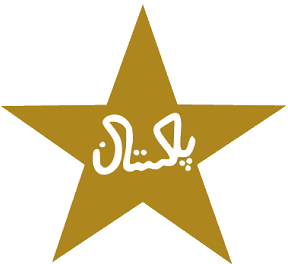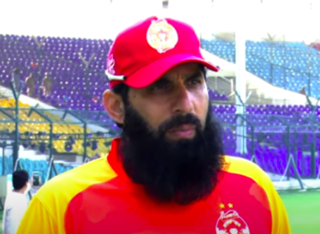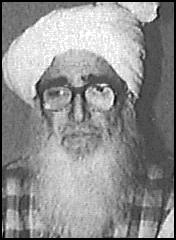| |||||
| Decades: | |||||
|---|---|---|---|---|---|
| See also: | |||||
Events from the year 1978 in Pakistan.
| |||||
| Decades: | |||||
|---|---|---|---|---|---|
| See also: | |||||
Events from the year 1978 in Pakistan.

Muhammad Zia-ul-Haq was a Pakistani military officer and politician who served as the sixth president of Pakistan from 1978 until his death. He also served as the second chief of the army staff from 1976 until his death.

The Pakistan national cricket team has represented Pakistan in international cricket since 1952. It is controlled by the Pakistan Cricket Board (PCB), the governing body for cricket in Pakistan, which is a Full Member of the International Cricket Council (ICC). Pakistan compete in cricket tours and tournaments sanctioned by the PCB and other regional or international cricket bodies in Test, One Day International (ODI), and Twenty20 International (T20) formats.

Inzamam-ul-Haq SI, also known as Inzi, is a former Pakistan cricketer and captain of Pakistan national cricket team. He is regarded as one of the best middle-order batsman of all time. He is the current chief selector of the Pakistan cricket team.

Rahimuddin Khan was a general of the Pakistan Army who served as the 4th Chairman Joint Chiefs of Staff Committee from 1984 to 1987, after serving as the 7th governor of Balochistan from 1978 to 1984. He also served as the 16th governor of Sindh in 1988.

Misbah-ul-Haq Khan Niazi PP SI is a former Pakistani cricket coach and former international cricketer. Misbah captained Pakistan in all formats and is former head coach and former chief selector of the Pakistan national team. As captain, he led Pakistan to being the champions of the 2012 Asia Cup. Misbah was a member of the team that won the 2009 ICC World Twenty20, two years after the defeat from the final in the previous tournament.
Events from the year 1985 in Pakistan.
Events of the year 1986 in Pakistan.
Events from the year 1977 in Pakistan.
Events in the year 1988 in Pakistan.
Anti-Ahmadi activities grew stronger and General Zia's government also took part in it. Ordinance XX was passed, which practically criminalized the Ahmadiyya faith. As a result, Mirza Tahir Ahmad had to migrate to England.
This article describes the history of cricket in Pakistan from the 2000–01 season to the present.

The history of cricket in Pakistan predates the creation of the country in 1947. The first international cricket match in what is now Pakistan today was held in Karachi on 22 November 1935 between Sindh and Australia. The match was seen by 5,000 Karachiites. Cricket was introduced by the British during their colonial rule of British India, which covered the area now known as Pakistan. Cricket is the most popular sport in the country. The Pakistan Cricket Board controls all domestic cricket in Pakistan and the national teams. Pakistan is an official member of the International Cricket Council and the Asian Cricket Council. Regarded as one of the best and most passionate cricketing nations, Pakistan has won the Cricket World Cup in 1992, ICC T20 World Cup in 2009, the ICC Champions Trophy in 2017, the ICC Under-19 Cricket World Cup in 2004 and 2006, the ACC Asia Cup in 2000 and 2012, and the ICC Test Championship in 2016. Pakistan were runner ups in the 1999 Cricket World Cup and 2007 and 2022 T20 World Cups. Pakistan have also been runner ups in several Asia Cup editions.
Sardar Ghulam Muhammad Khan Mahar was chief of the Mahar tribe, and a prominent politician and philanthropist of the Sukkur District. He was first elected as a member of National Assembly of Pakistan in 1964. He became senator in 1973 with the Pakistan Peoples Party (PPP). He was elected a member of the National Assembly in 1977 general elections as the PPP candidate from NA-152 Sukkur II, he was elected Chairman District Council Sukkur in 1979 and remained until 1983. He was Minister for Agriculture when General Muhammad Zia-ul-Haq was the Martial Law Administrator. He won general elections of March 1985 as an independent candidate, and remained Minister of State for Health from 22 December 1986 to 29 May 1988 in Prime Minister of Pakistan Muhammad Khan Junejo's cabinet. In 1988, post Gen Muhammad Zia-ul-Haq era elections, he was defeated by Pakistan Peoples Party (PPP's) candidate Mian Abdul Haq Alias Mian Mitho. He became a member of National Assembly once again in October 1993 by contesting general elections from NA-152 as the candidate of Pakistan Muslim League (N) and afterward he died in April 1995.
Lieutenant General Zahid Ali AkbarHI(M), SBt, PE, is a former engineering officer in the Pakistan Army Corps of Engineers, who oversaw the civil construction of the Army GHQ in Rawalpindi, and later directing the Engineering Research Laboratories (ERL), a top secret research facility developing the clandestine atomic bomb program in the 1970s. Promoted to the rank of Major General and later Lieutenant General by President Zia ul Haq, post-retirement he was targeted for political reasons by General Pervez Musharraf and forced to make a 200 million plea bargain in a corruption case in 2015 to avoid continued political persecution.

Abdul Haq, also known as Abdul Haq Akorwi was a Pakistani Islamic scholar and the founder, chancellor, and Shaykh al-Hadith of the Islamic seminary Darul Uloom Haqqania. He also served as vice-president of Wifaq ul Madaris Al-Arabia, Pakistan. He was involved in politics as a member of the political party Jamiat Ulema-e-Islam. He served three times in the National Assembly of Pakistan and was an active proponent of the Khatme Nabuwwat movement.
The family of head of state and government in Pakistan is an unofficial title for the family of the head of state or head of government of a country. In Pakistan, the term First Family usually refers to the head of state or head of government, and their immediate family which comprises their spouse and their descendants. In the wider context, the First Family may comprise the head of state or head of government's parents, siblings and extended relatives.

Imam-ul-Haq is a Pakistani international cricketer. On his One Day International (ODI) debut against Sri Lanka, he became the second batsman for Pakistan, and thirteenth overall, to score a century on debut. In August 2018, he was one of thirty-three players to be awarded a central contract for the 2018–19 season by the Pakistan Cricket Board (PCB).
The 1978 massacre at Multan Colony Textile Mills was one of the most brutal acts of Muhammad Zia-ul-Haq's regime in Pakistan. Paramilitary forces opened fire on striking workers, resulting in 22-133 killed and many injured.
Events from the year 2019 in Pakistan.